
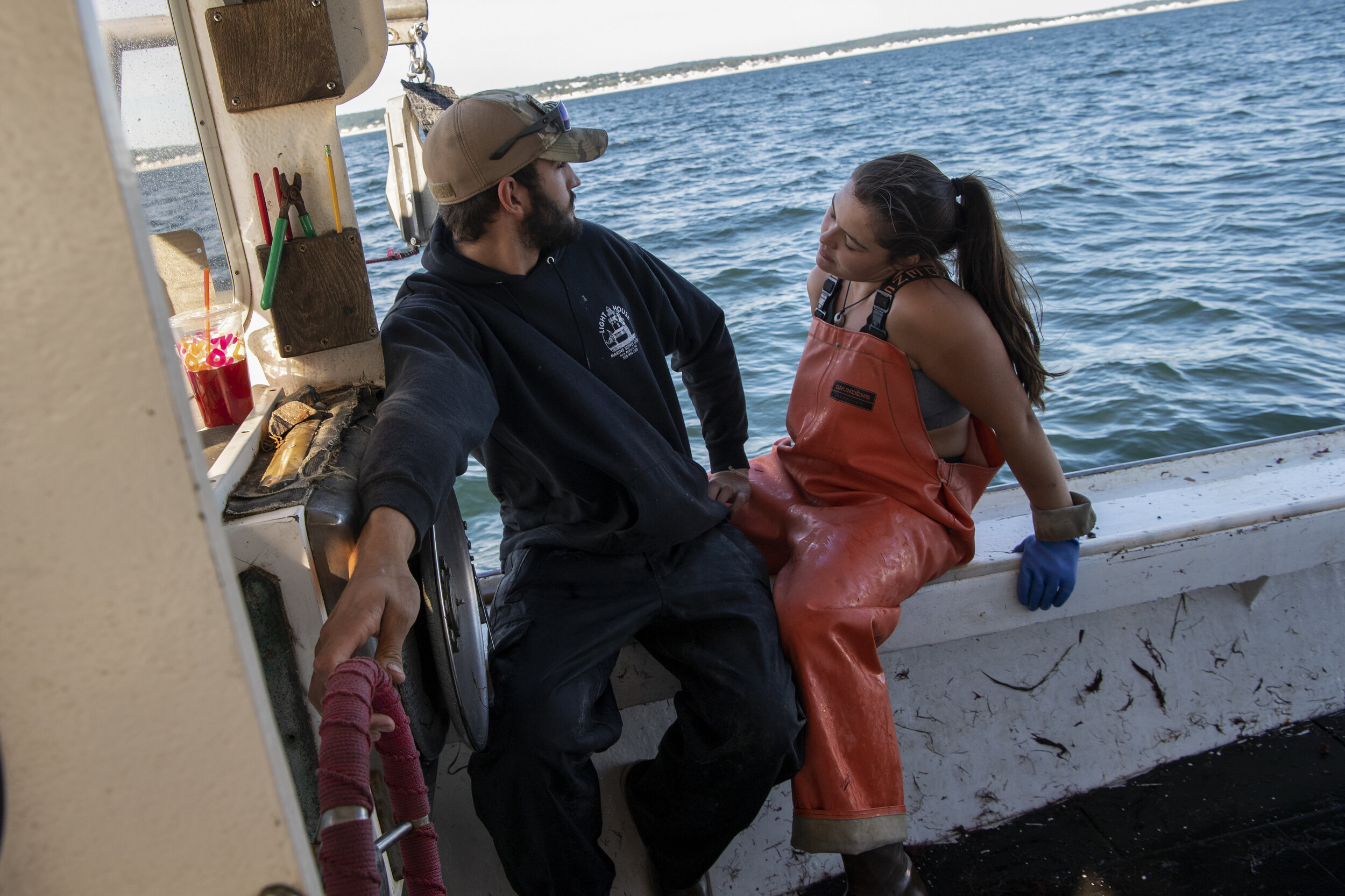
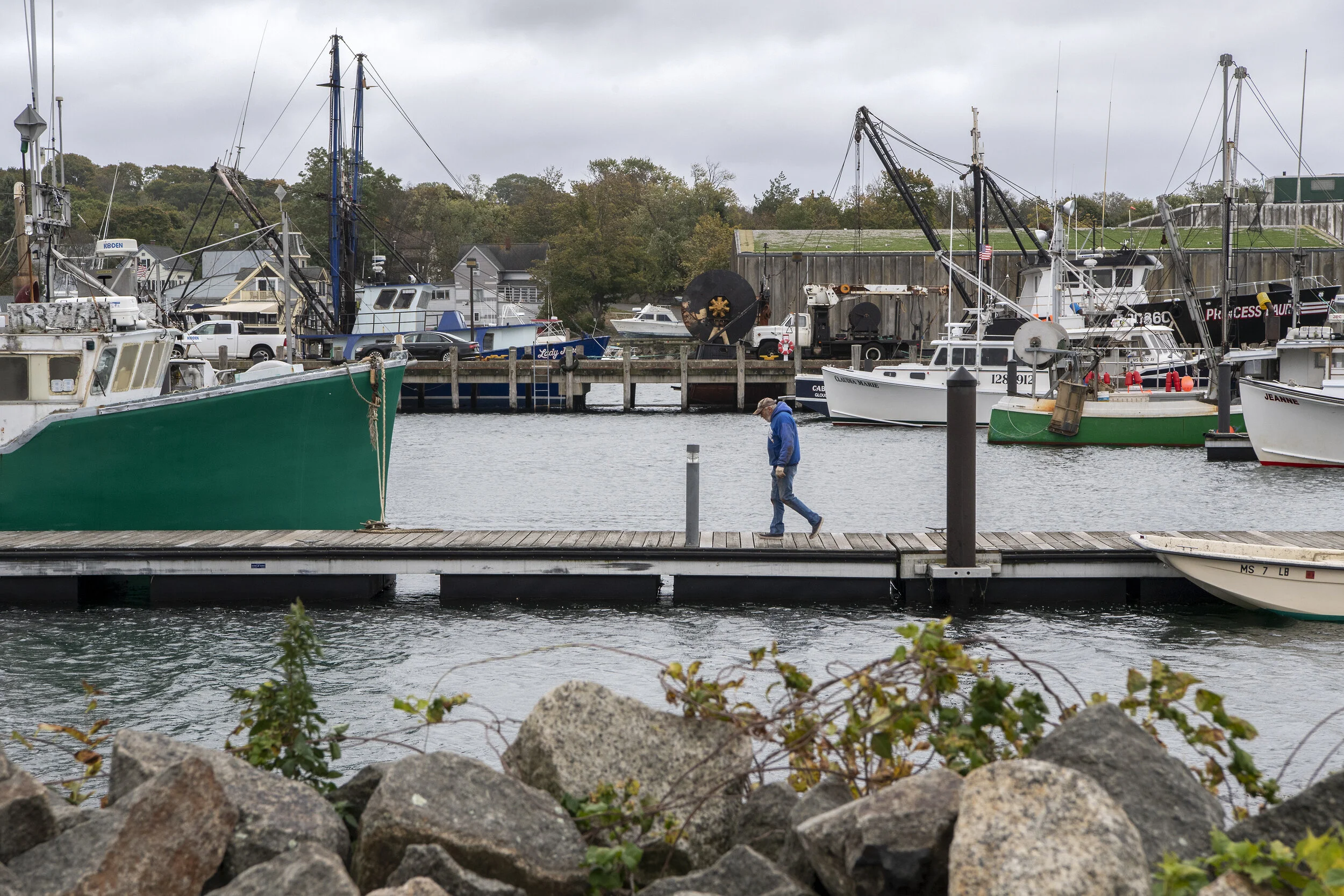
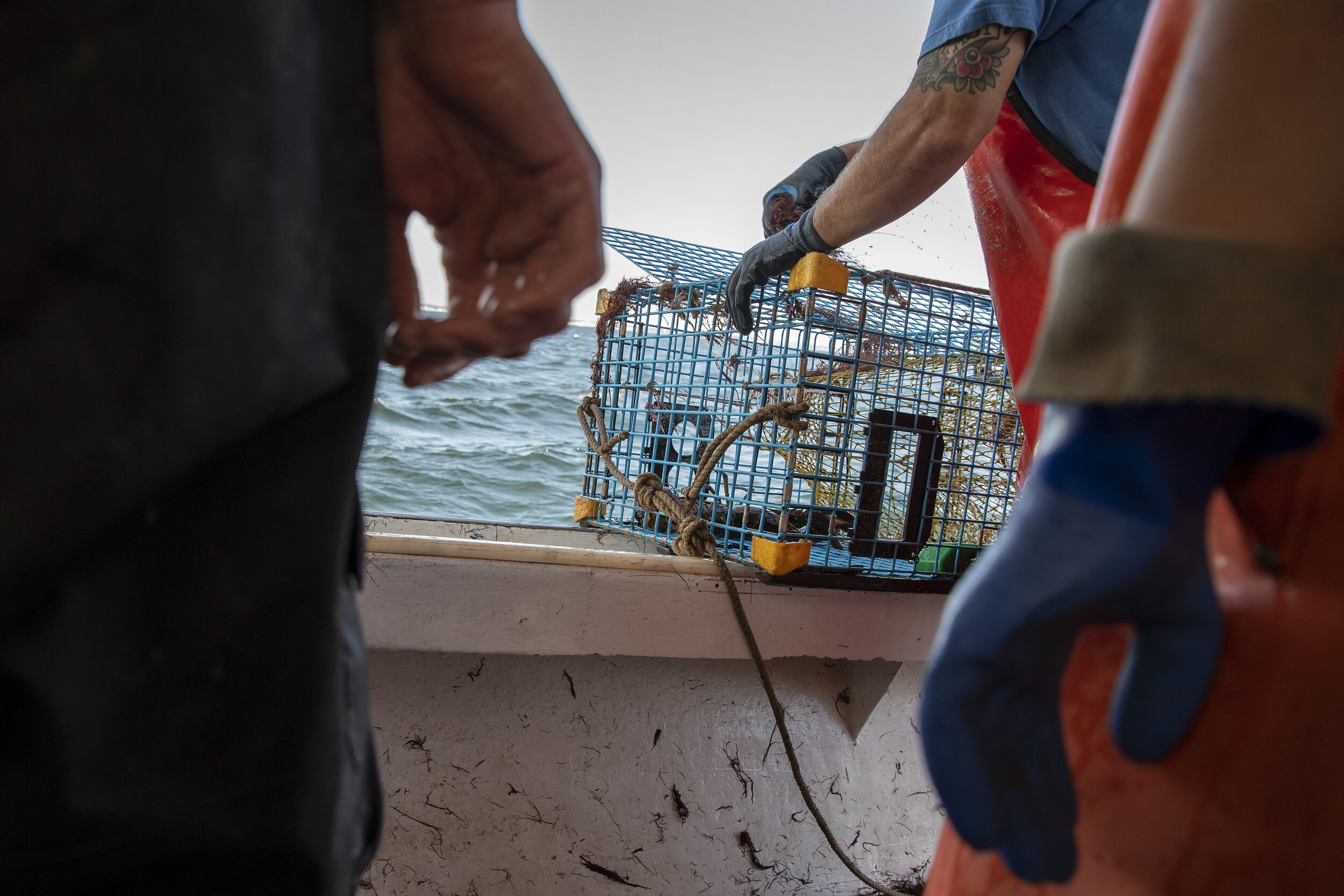
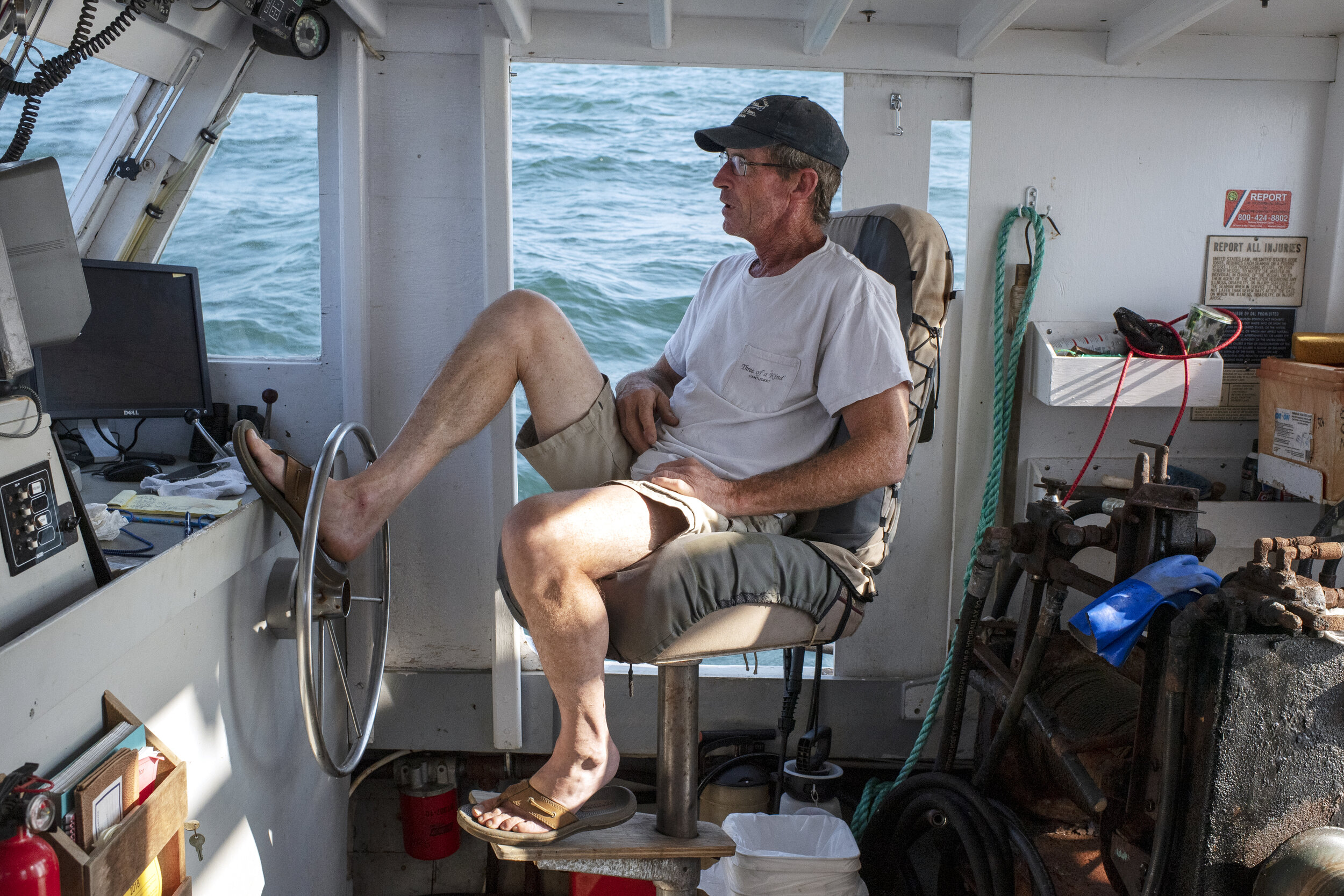
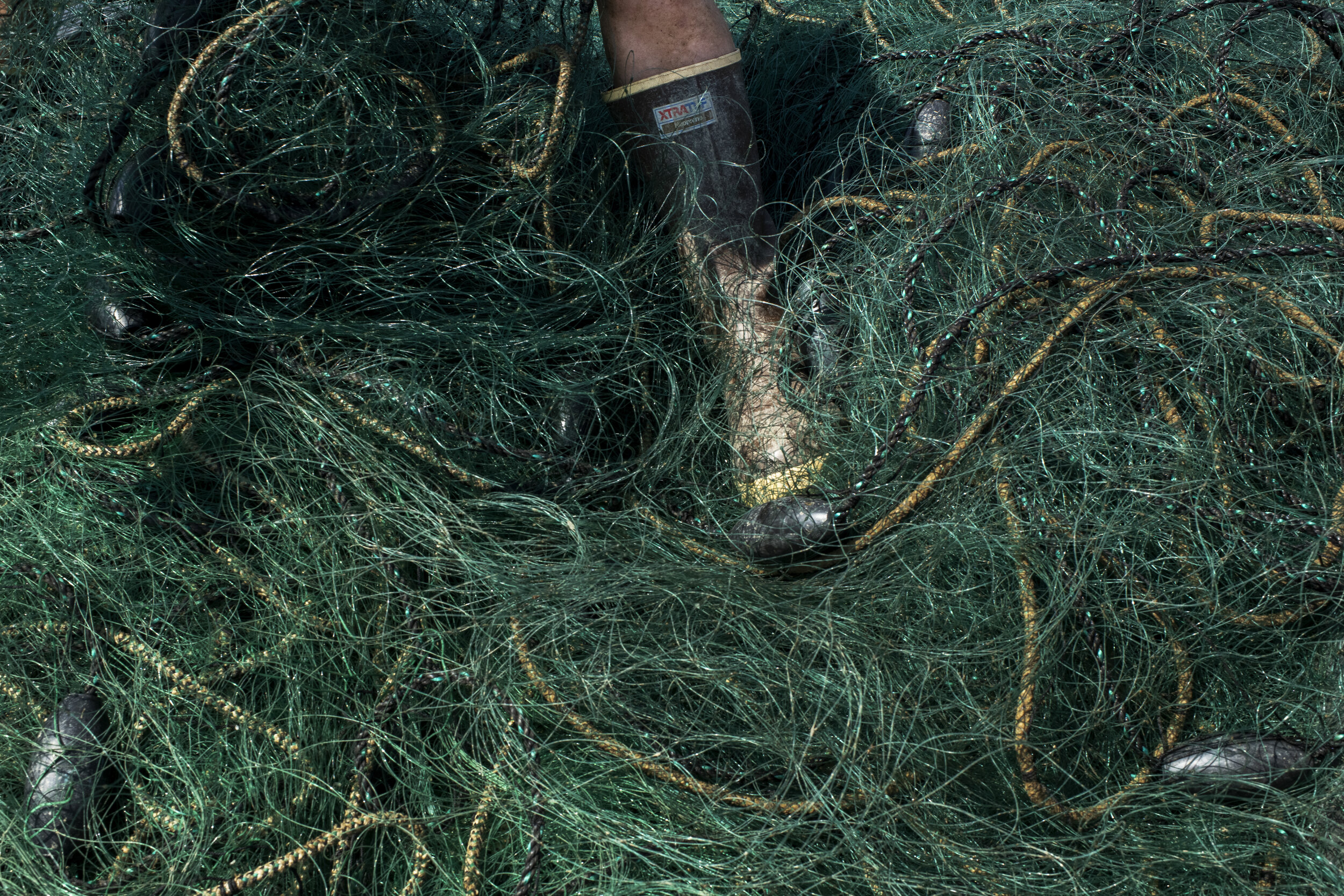


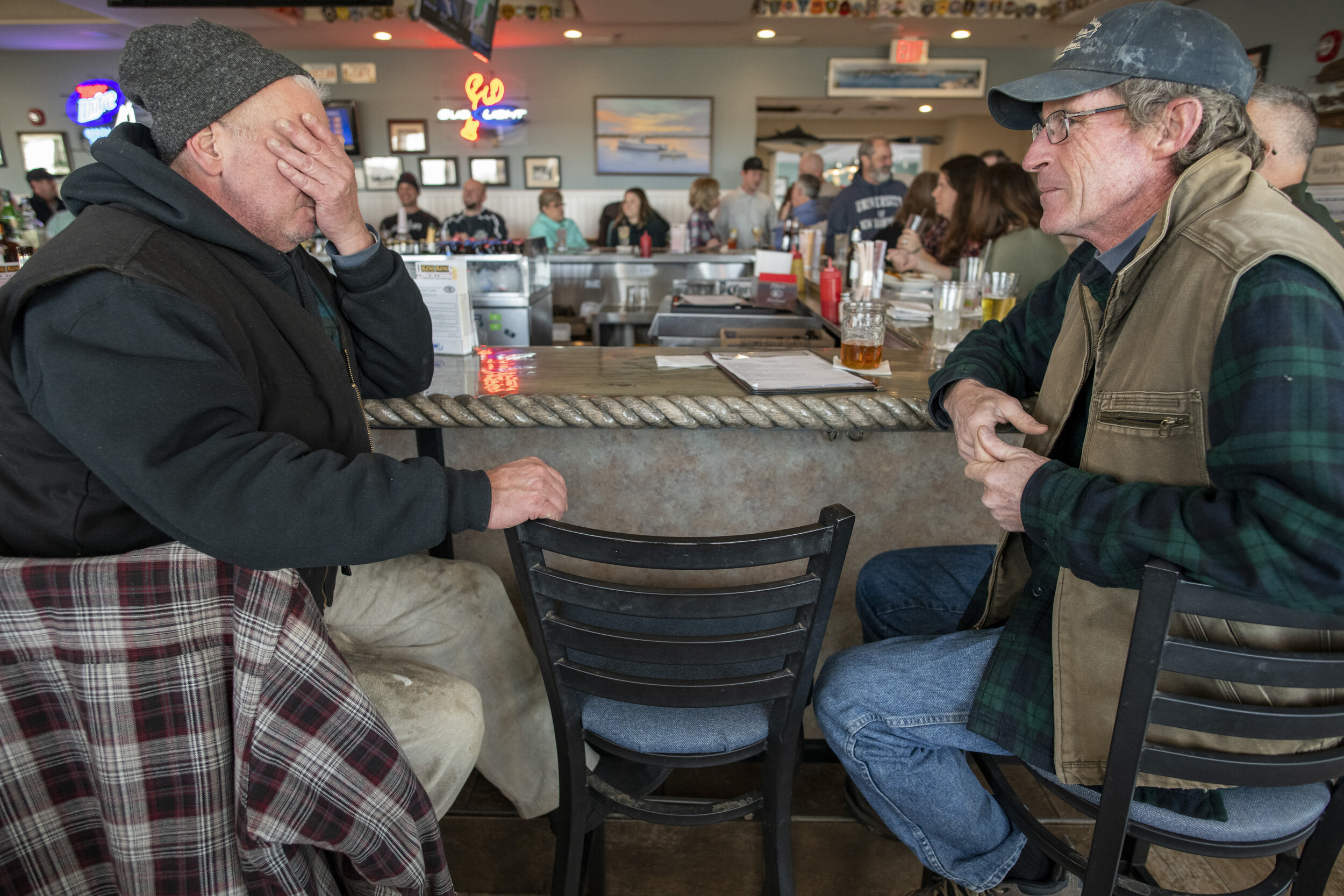
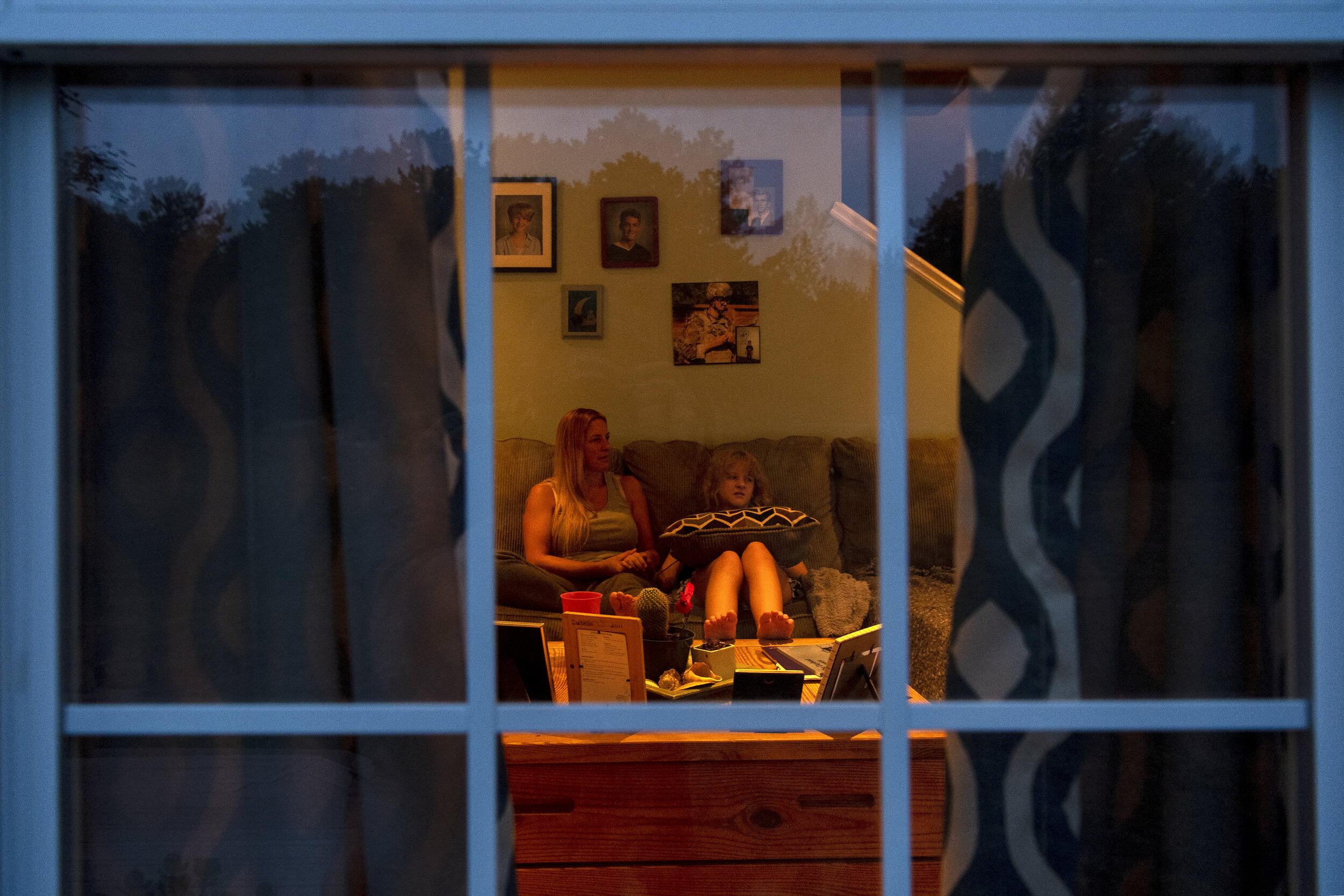
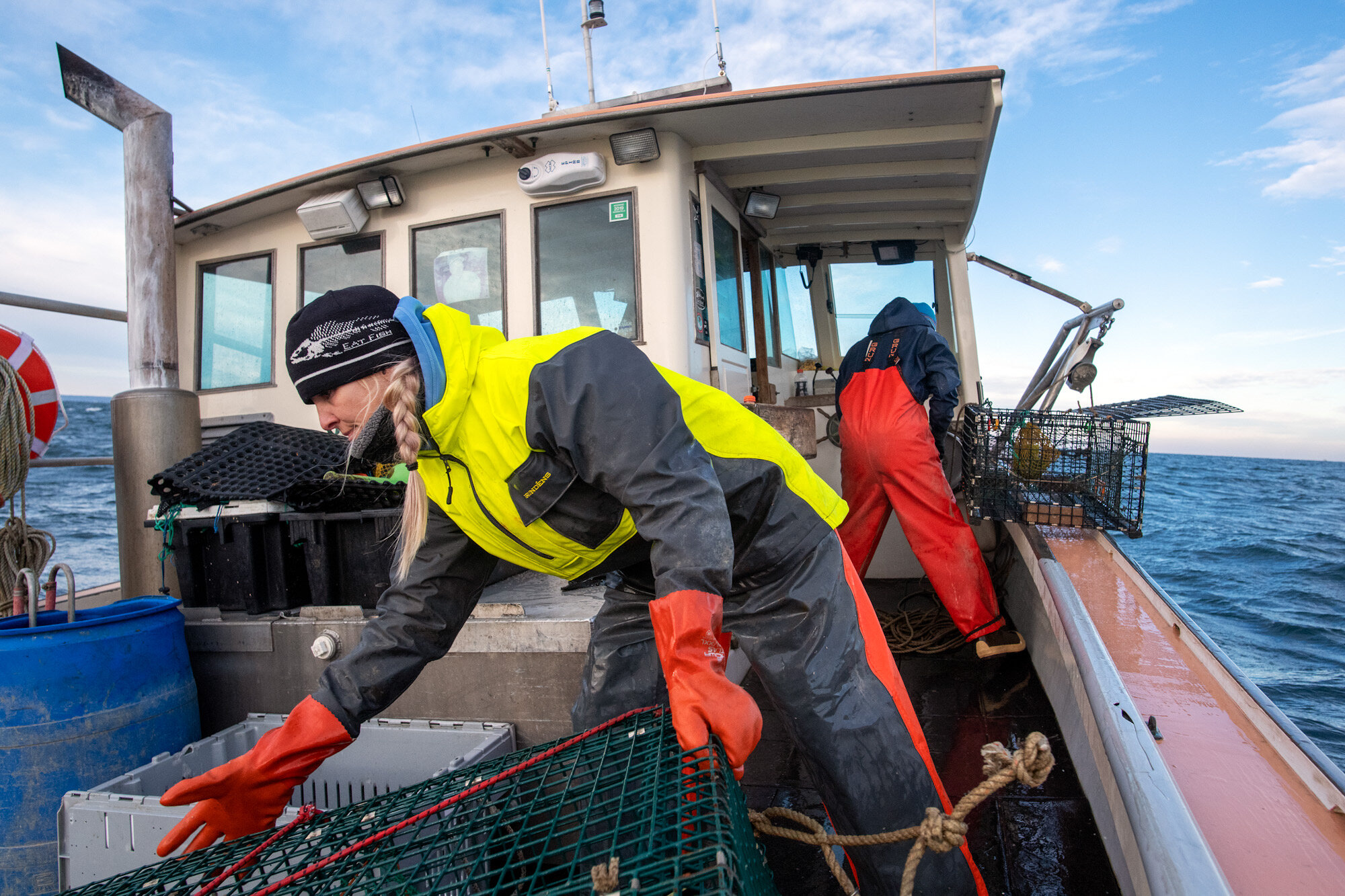
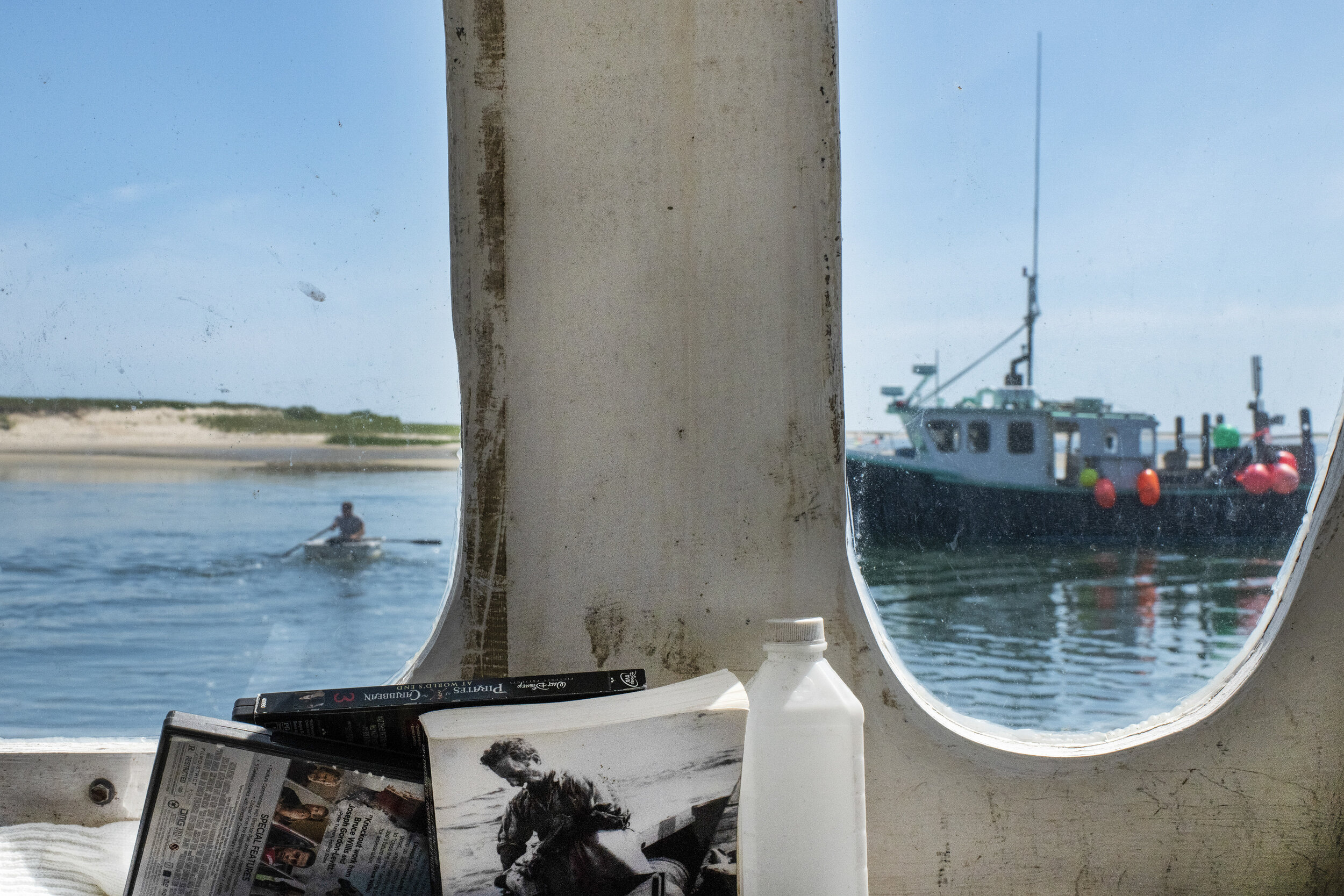


The North Atlantic is home to some of the most successful fishing grounds in U.S. waters. But the small boat lobstermen and fishermen who’ve fished them for generations, called dayboat fishermen, are quickly dwindling. They must now contend with climate change, low fish populations, governmental regulation and volatile markets.
Between the year 2000 and 2020, over 70% of the cod fishermen in the area left the industry. And as the Gulf of Maine warms, lobsters push north toward cooler waters, leaving some New England lobstermen high and dry.
All that remains between these fishermen and their financial demise, is the steadfastness and stubbornness that has so often defined the spirit of New England fishermen. For them, it’s not just a job, it’s a way of life. There is no where else for them to turn.
Pictured: Cara Delaney lines lobster traps with bait on the deck of the Pot Luck as the sun starts to rise above the horizon. Despite lobster prices off the boat only fetching half of what they used to, there is no hesitation by Delaney, or anyone else aboard the Pot Luck, to wake up long before the sun in order to continue on with the work that they love.

Toby Mason steers the lobster boat, Pot Luck, while he and his girlfriend rest between hauling lobster traps on Cape Cod Bay. Younger generations of lobstermen are few and far between compared to years past, and Mason isn’t sure how long he’ll follow in his father and grandfather’s footsteps.

The Port of Gloucester in Massachusetts braces for a fall Nor’easter with gale force winds that keep the entire fleet from fishing.

Peter Mason hauls up a nearly empty lobster trap as his son Toby Mason, left, and Toby’s girlfriend, Caroline Howlett, watch from the wheelhouse behind. There is an art and a science to trapping lobsters. But despite generations of tracking lobster breeding grounds, and the science of sonar and data collection, there are no guarantees that there will be any lobster in a trap when it is hauled to the surface.

Fisherman Tim Barrett steers his trawler to his permitted fishing grounds in hopes of locating species of groundfish he still has quota for. Fisherman can only catch a certain amount of poundage each year per species of fish, often meaning they have to lease others’ quota or save some of their quota to fish later in the year when prices are better or finances demand it.

A boot sticks out of a tangled mess of fishing net on the back of a truck as the crew of the DAWN-T remove an old net to be replaced with a new one. Each net, line, cage and countless other products are regulated for their build and quality in order to meet the demands of fishermen and protect the environment.

Garry Sandborn looks out at the water while fastening his lobster bib pants as the tail end of a nor’easter moves through Gloucester, Mass. As soon as the weather clears, Sandborn and his crew will make their way to the fishing grounds as quickly as possible to make up for lost time in the storm.

Inside Peter Mason’s garage turned workshop as he builds his own lobster pots in Marshfield, Mass. By making his own traps, Mason stands to save at least a third of the cost on each trap. As off-the-boat lobster prices continue to fall, every penny counts. Mason, like many other fishermen, voted for President Trump in the 2016 election after promises were made to ease the tight restrictions on fishing grounds in U.S. waters. No such changes have been made to restrictions in the area where Mason works.

Fishermen Jamie Whittaker, left, and Tim Barrett, share a drink at the Haddad’s Ocean Cafe in Green Harbor, Mass. Haddad’s Bar used to be a fisherman’s hangout. Now it has transformed into more of a sports bar for locals and tourists. Some fishermen, such as Whittaker and Barrett, still find themselves stopping in for a drink.

Cara Delaney and her daughter, Isabella, enjoy a night at home together watching the reality show “Below Deck” before turning in. Delaney often leaves for the docks long before her kids leave for school in the morning. As a single mother, in the midst of a pandemic, balancing home life and life on the water is a constant balancing act as schools attempt to navigate the hybrid school models that keep Isabella and her brother at home alone during the day.

Cara Delaney, a sternman on the lobster boat, Kestrel, stacks an empty trap after pulling it from Cape Cod Bay. Since 2016, the bay has been ordered closed from lobstering between February and April by NOAA to protect the endangered Right Whale from entanglements during calving season. For lobstermen, this means January is their last chance to earn income to hold them over until Spring.

Chatham Harbor, Mass., seen from inside the wheelhouse of the DAWN-T fishing vessel. The DAWN-T is one of many fishing vessels partnering with NOAA to measure water temperatures in the Gulf of Maine, one of the worlds fastest warming bodies of water on earth. Some fishermen and lobstermen find ways to subsidize their income, including partnering with research entities who pay or can lift certain restrictions on the boats.

As dawn breaks over Boston Harbor, a lone employee at the Boston Fish Pier waits to offload larger boats arriving from multi-day trips in deeper waters. The money is no longer in the small boats that have been the foundation of commercial fishing in New England for centuries. Instead, companies that own several large boats outfitted for weeks at sea, as well as the influx of cheaper fish products from international fish farms, are replacing the small boat operators at a staggering rate.